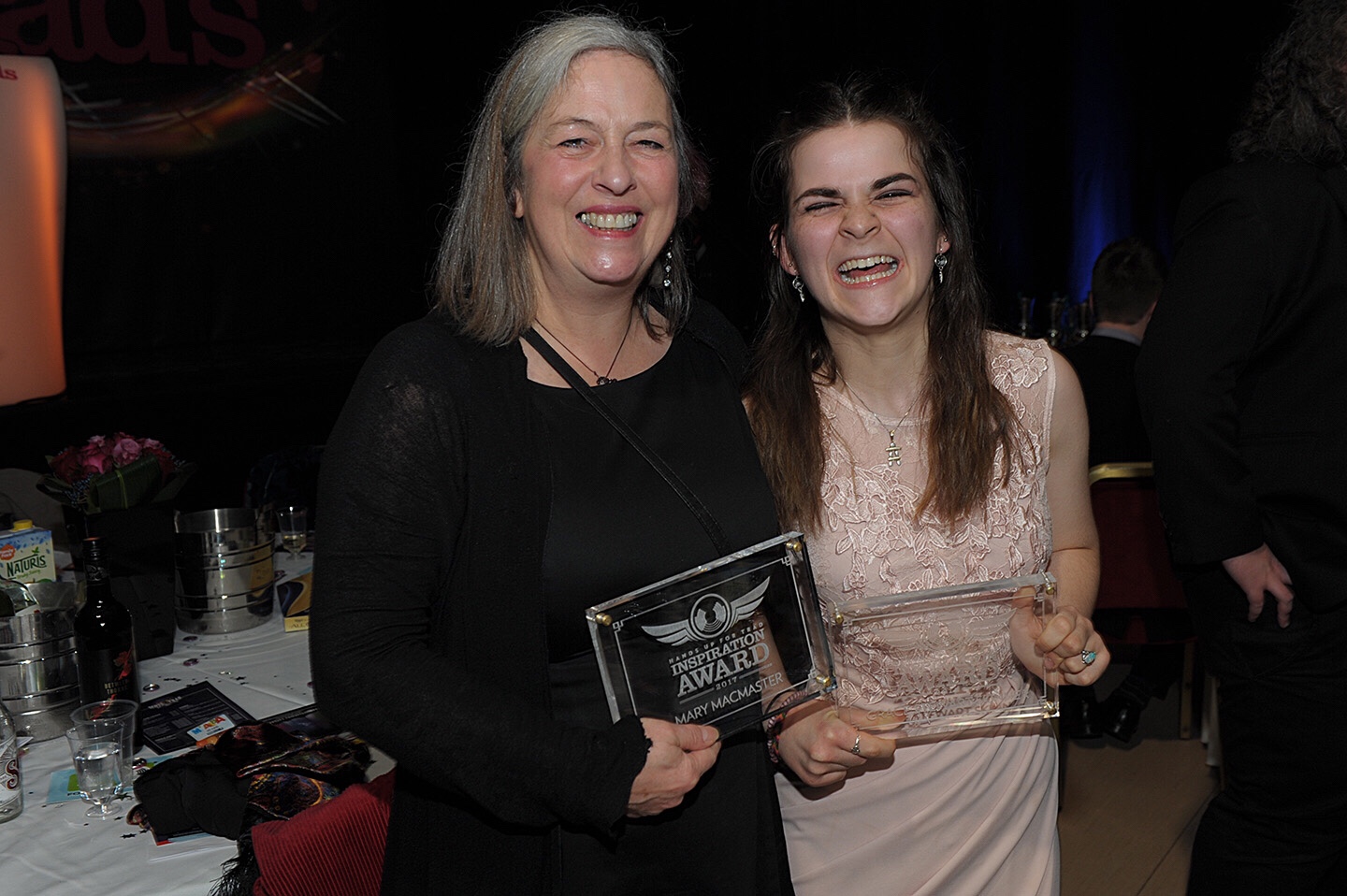 Mary MacMaster has been an inspiration to aspiring harp players since she emerged on the Scottish music scene with the all-women ceilidh band Sprangeen in 1981, and as a self-taught musician, she has progressed from playing the cheapest harp she could find in Exchange and Mart magazine to working with state-of-the-art electroharps and performing with top names including Sting.
Mary MacMaster has been an inspiration to aspiring harp players since she emerged on the Scottish music scene with the all-women ceilidh band Sprangeen in 1981, and as a self-taught musician, she has progressed from playing the cheapest harp she could find in Exchange and Mart magazine to working with state-of-the-art electroharps and performing with top names including Sting.
Sprangeen was relatively short-lived but it was here that Mary joined forces with fellow harpist Patsy Seddon in a relationship that saw them form, first, the harp duo Sileas and then the enduring all-women group The Poozies, initially with singer Sally Barker, latterly of television’s the Voice and the reformed Fotheringay. Their harps were also a feature of Scottish folk supergroup Clan Alba during the 1990s.
“Mary is an instinctive musician and has always followed an unconventional path showing us all that other ways are possible,” says Patsy. “When she invited me, in 1981, to join a group of women to form a band (which became Sprangeen) I said, ‘You can’t have two harps in a band’ and she said, ‘Why not?’ That’s her in a nutshell!”
In 1984 Mary and Patsy met Joël Garnier, the Breton harp maker who perfected the electroharp, at Edinburgh Festival. Garnier invited Sileas to play a concert in Lorient, in Brittan, after which he presented them with their first Camac electroharp. It was to be the beginning of a long relationship and the route to Mary becoming not just a harp player in the Poozies, but to all intents and purposes, the bass player too.
As fiddler Eilidh Shaw, who joined the Poozies in 2007, says: “When I met Mary Macmaster she was still in her twenties but already renowned as the funkiest harp player ever. She was – and has remained – the epitome of cool, teasing traditional music out of its box and leading it down a mischievous road to where the real party is. It’s fantastic to see her get the recognition she deserves. She has not only been a huge musical inspiration to me and countless others, but also a true friend and mentor.”
Mary’s sense of adventure extends beyond traditional music. She has worked in a world music project with jazz drummer Mike Travis and her duo with drummer Donald Hay finds her using samples such as harp chords or a bowed bass string that Hay can trigger during performances. In addition to two albums, MacMaster/Hay have undertaken a commission for Celtic Connections, Three Days, which also featured harpists Kristen Nogues, Patsy Seddon, Corrina Hewat and Maeve Gilchrist.
This willingness to experiment makes Mary a natural participant in projects including Songs of Separation, which brought ten female folk musicians and singers together, including Eliza Carthy and Karine Polwart, and won the Album of the Year prize at the BBC Radio 2 Folk Awards 2017.
Rachel Newton, the Musician of the Year title winner at the same awards, sums up Mary’s effect on the younger generation of musicians by saying: “Mary has been a massive inspiration for me since I first heard her in The Poozies. I’ve been lucky enough to work with her and Donald Hay in their extended Macmaster/Hay project. Mary opened my eyes to the possibilities of the harp outside the traditional idea of what it can be, especially seeing her play electroharp. I’ve also been inspired by her support and interest in coming to hear new music.”
Read about our other Hands Up for Trad Inspiration Awardees here.